|
Horror Tour Guide recently interviewed Christian Horror's very own, Scott Smith. Here's also a link to Horror Tour Guide and the original article:
Please introduce yourself, where you are from and what you do.
I’m Scott Smith. I’m an author/blogger, attorney, and theologian from southern Louisiana, where I live with my wife and four wild-eyed children. Can you tell us a little about your site? I run ChristianHorror.com, H2OlyWaterBooks.com, and some other sites. ChristianHorror.com is a community founded to promote the Christian horror subgenre. The site consists of Christian horror reviews, books for sale, and blog posts. H2OlyWaterBooks.com is the home of my publishing imprint Holy Water Books. Can you explain “Christian Horror” and your interpretation of it? Good question! I would explain “Christian Horror” as any portrayal of the horrific aspects of a Christian worldview, such as the evils of sin or the demonic. But, more than that, it’s a diagnosis of the horror in society from a Christian worldview, which is an essential work of the Christian. Some say that being a Christian and liking horror are 2 things that don't mix. How do you respond to that? Haha, yes! I often see that. Contemporary culture seems to have erected a false divide between Christianity and horror novels, which is as much a result of the current state of Christianity as it is the current state of horror novels, both of which, I think, could benefit from some “Cross” pollination. More specifically, though, I would respond to the perceived distaste between horror and Christianity from an historical perspective. The entire genre of horror, much like the rest of western civilization, has its origins in Christianity. For example, the morality plays of the Medieval period and onward were as much a “theatre of the grotesque” as any Saw or Texas Chainsaw or Hellraiser movie is today. Just take a look at Hieronymus Bosch’s depiction of Purgatory:
Yikes!! This isn’t even Hell – it’s Purgatory! We can’t forget about Dante’s writing, either? Not just his Purgatorio, but the Inferno, as well. You want to see or read about the truly grotesque? Dante, an indisputably Christian author, can truly curl your toenails.
But what’s the difference? What’s the difference between Dante and Stephen King? (And I love Stephen King) From morality plays to Dante, this horror is told for a Christian purpose: to save souls. Obviously, Christian horror maintains a completely different metaphysical philosophy than other kinds of horror, whether other horror creators are conscious of it or not. Again, what’s the basic difference? I think it started with either Poe or Lovecraft, but they created a new kind of horror in which anarchy, not order, is the foundation for all things. Insanity and the void lies just beneath everything – they are the “rats in the walls.” Do you find that you face some convictions from both the Christian and Horror community because of writing a horror novel and series? Definitely – well, sort of. I’m not sure how many people have really, consciously thought about the differences I spelled out above. These convictions are encountered, instead on the subconscious level. They’re not convictions, therefore, so much as vague misgivings. As a Christian, what kind of challenges do you face in writing a horror story? Actually, as a Christian, I face the challenge of not writing a horror story. An author is supposed to write about the world around him/her, right? As Flannery O’Connor described many times, in many different ways, and far better than I could ever, Catholics and Southerners, in particular, can better recognize the “freaks” and the “grotesque” of society. The horror genre, itself, does have some seductive elements that I try to avoid. I write clean books. There are no f-bombs, no gratuitous accounts of sex. I try not to objectify the human person, though some of my monsters definitely do, especially when considering their nightly menu. In your novel "The Seventh Word" you are tackling the issue of abortion in a super natural way. Can you tell us a little more about that? Again, I think this comes directly from a Christian worldview: what horrifies a Christian? Abortion is one of those few issues that unifies Christianity, particularly in their horrified response to it. So I kept asking myself, why hasn’t anybody ever written a horror novel about one of the most horrifying issues facing mankind? We’ve written tomes of horror novels about clowns, but not this?
You may be thinking what about Rosemary’s Baby or The Omen? Those are supernatural stories dealing with abortion. The difference is obvious, though, isn’t it? Those stories make us ask if abortion would be justifiable if the child is a demon. The Seventh Word asks whether demons are helping us justify abortion.
The rest was easy. This is very fertile ground for horror, especially Christian horror. Why? Just think about all the times mankind has witnessed the large-scale killing of children. The Bible, itself, depicts several genocides of children: King Herod’s “Slaughter of the Innocents” and Pharoah’s instruction to the midwives of Egypt. History is full of child sacrifice. There were the Aztecs, as well. As a writer, the question became what if all these historical instances were somehow connected? What if the same demon was behind each event? That’s when The Seventh Word was “born.” We see you are creating a zombie series called "The Cajun Zombie Saga" on Patreon. Can you give us some insight on this series? Definitely! This zombie series asks a couple unique questions that are new to the Zombie Apocalypse subgenre, but which are, to me at least, obvious. Mankind actually has survived apocalyptic, nearly extinction-level events before, like the Bubonic plague of the Middle Ages. How did we do it? And how would we do it again? This allows me to explore another interesting question:
What kind of society is best structured for survival? Through this, I was able to create an entirely new twist on the origins of the zombie virus.
Like all my books, this series is also set in my home, Louisiana. People tend to be fascinated with Cajun culture, so how would Cajuns survive a zombie apocalypse? What is your definition of horror? This may sound weird. To me, horror is an engine. It’s a tool to drive a plot. It’s another way to create suspense, mystery, and ultimately drama. A properly-tuned horror engine, from my perspective, helps us recognize the true monsters, both within and without. What’s your favorite horror film? I love this question! It’s the answer that’s difficult. There are so many horror subcategories! I’m a huge zombie nerd. My favorite there is the original Dawn of the Dead. I must have convinced my dad to rent this VHS from Blockbuster a dozen times. I feel like Stephen King should be his own subcategory, too. The old It, even with all its faults and borderline acting, is probably my favorite. My favorite kid-oriented horror film of the 80s – one of my favorite horror sub-subgenres – is The Gate. This is actually what I’m titling my current writing project, the sequel to The Seventh Word, and there are definitely some similarities. Overall, my top horror movie of any subcategory or decade, is The Shining. I wouldn’t even put this one in the Stephen King subcategory. Kubrick did something extra with the source material. The madness and insanity is always just below the surface. I’ve said above that, to me, this is a philosophical deviation from true horror, but it’s certainly chilling. If anyone would like to find you on the internet, or to purchase your books, where can they find you? HolyWaterBooks.com is the best place to find me, though the Cajun Zombie series is only available right now through Patreon.
5 Comments
Horror: The Perfect Christian Genre
12/9/2017
Why shouldn't a Christian artist embrace the horror genre? Horror has long been an element required for the Christian story. Not only should it be embraced, Christians need to reclaim the horror genre for those that might try to muddle basic archetypes of good and evil, making good things evil and evil things good. Scott Derrickson, co-writer and director of the film The Exorcism of Emily Rose, says horror movies are an excellent way for a Christian filmmaker to address things of faith.
How I’m a Christian Horror Writer
11/14/2017
By Maurice Broaddus, originally published on his blogAs the “sinister minister,” one of the first things that I get asked is how can I be a horror writer and call myself a Christian. I actually get asked this by “both sides”: this is one of the primary questions of my horror brethren, probably because they sympathize with the assumed grief that I get from my fellow Christians (though I’ve been invited to speak on “Horror as a Genre” at a Christian convention).
This isn’t a “once and for all” type post, but I think it’s a question worth exploring at length. From the Christian side of the question, part of the underlying issue lies with misconceptions about the genre. When churched folk typically think “horror” they think blood, guts, and the demonic. One time, our extended family sat around the dinner table (after a church service where we symbolically drank the blood and ate the flesh of our Savior). Discussion turned to my web site having both Christian and horror content, at which point I was accused of being”lukewarm” (you have to love epithets that you have to look up in the Bible to get: lukewarm refers to those whom Jesus would spit out as being neither spiritually hot nor cold) because I write horror. “That’s demons and witchcraft” and “I’m only doing the devil’s work” are especially ironic accusations, since it’s their side of the family that has the practicing obeah people. Sometimes I remind people like this about the Bible they are using to condemn me. We could object to the individual elements of the Bible, like the occultic parts involving sorcerers/witches, mediums, and the demons/demon-possessed. We could skip the blood and guts of people being dashed against rocks, their entrails eaten by dogs, mothers eating their own afterbirth, and tent pegs being thrust through people’s heads. We could ignore the bad language (though, we play down the stuff that would be translated piss and shit today); just like we tend to gloss over the sex scenes and the rapes. Or we could realize that the overarching point of the book, the meta-narrative, is the story of redemption. The other thing I remind these well-intentioned folk of is that the language of the genre is the language of Christianity. What do horror stories–like the ones they had to read in high school (like the stories of Edgar Allen Poe or Shirley Jackson’s “The Lottery”) or movies you know they have watched like “The Sixth Sense”–wrestle with? The total depravity of man (if you want a Calvinistic loaded phrase), the nature of good and evil, the mystery of the afterlife, unseen spiritual forces (like angels or demons), or the meditation on mortality/our fear of death. Even the most “atheistic” horror writers, at the very least, are moralists; using writing as therapy, wrestling with what they see in the world around them. So the question becomes “how could I not write horror?” On the flip side, many in my horror circles have misconceptions about Christianity, much of it stemming from a distrust of the institutional church. Let’s face it, many of their stories begin “I was raised (fill-in-the-blank denomination), until …” the church failed them in some way. Many religious people have a narrow definition of what construes true or “saving” spirituality and arguments aren’t going to convince them otherwise. They believe what they believe and they know what God has to say on the topic. Put simply, horror is not for everyone. According to my faith, in Christ we have been given tremendous freedom, not a list of dos and don’ts as many people interpret spirituality. However, we also have been given wisdom to draw our own lines for what constitutes what we can handle and what constitutes sinning against our conscience. Where this freedom becomes abused is when, for example, I assume that my line is the universal demarcation that all Christians should follow. Look, my faith informs my writing. As writers, our worldviews–from nihilistic to religious–are a part of us and thus a part of our writing. What we believe, why we believe, it’s all in there. Are there topics that I won’t touch? I don’t know. I do know that my primary concern is “can I write my stories well?” Admittedly, there is a distrust of art within the Protestant church in particular. It’s like we have come to believe that you can’t have art for art’s sake, that the only thing that makes art redeemable is if it’s a set up for our sales pitch (for example, if at some point the victim in my vampire story might turn to her pursuer and explain how said vampire can know Jesus Christ as his Lord and Savior). Is that the sole definition of a Christian work? No, that’s propaganda, not art. It’s okay if we pursue art for art’s sake. Creating beauty is its own pursuit of truth and all truth points to God. For that matter, since I believe in God as the ultimate Creator, as a writer, I’m joining in his creative work. And I firmly believe that when you are doing what you were created to do, you are doing God’s work. So the question becomes, “how could I not be a Christian writer?”
Horror represents a field many Christians approach with trepidation, and rightly so. The horror shelves of bookstores and video stores are very largely a wasteland of mindless, tasteless trash; indeed, there may be no other genre as disproportionately overrun with junk.
Yet the grotesque, the macabre, and the frightful have an abiding place in human imagination and culture — a place that Christian sensibility has historically not seen fit to reject or condemn, at least entirely. By Steven Greydanus, originally published in the National Catholic Register
In the Middle Ages, gargoyles and grotesques were prominent features of sacred architecture. The danse macabre or “dance of death” — a dramatic or artistic representation of men being visited by Death, fruitlessly attempting to resist or escape, and finally being away in a grim procession or dance — was a popular art form.
More recently, the Vatican recognized the first great horror film, F. W. Murnau’s vampire film Nosferatu, in its 1995 list of 45 great films. Another Vatican list honoree, The Seventh Seal, offers a cinematic take on the danse macabre. In Christian households, untold generations of children have been raised on fairy tales featuring all manner of goblins, dragons, witches, and so on. In the age of film, this roster of nursery monsters includes such figures as the winged monkeys and Wicked Witch of the West in The Wizard of Oz and the raucous hellions and demon Chernobog of the “Bald Mountain” sequence in Fantasia (two more Vatican list honorees). The grotesque does have a disturbing and objectionable side. In too many books and films, villains become heroes, imaginative engagement of evil becomes glorification of evil, and mayhem and gore become ends in themselves apart from any sense of artistic restraint or moral context. I’ve seen none of the films in the Saw or Hostel series, but it’s hard for me to imagine that they aren’t as execrable as the label “torture porn” would suggest. The celebratory vampire novels of Anne Rice and gruesome slasher flicks like the Nightmare on Elm Street series would also seem to fit the bill. But not all horror films and novels deserve such censure. For example, there is much to appreciate in the original Universal horror films of the 1930s and 1940s, especially James Whale’s Frankenstein, as well as Dracula, The Wolf Man and The Mummy, among others. Among more recent fare, an eclectic list of films I appreciate might include The Silence of the Lambs, The Sixth Sense, The Exorcism of Emily Rose, Tim Burton’s Corpse Bride and District 9.
It is possible to reject all of this root and branch. To be really consistent, though, anything that looks or smells of horror will have to go: every production of Shakespeare’s Macbeth and
Hamlet, with the witches’ blasted heath of the former and the spectral visitation of the latter; the climax of Raiders of the Lost Ark, with the Nazis’ melting faces and exploding heads; every incarnation of Dickens’ A Christmas Carol, with the deathlike specter of Christmas Yet to Come; the satanic “boo” moments in The Passion of the Christ. Some critics even found the scourging scene in The Passion, among others, to be reminiscent of horror, though this is probably pressing the point too far. Nor will we have much success looking for literary horror effects in the Bible, despite all the gruesome violence in Judges and elsewhere, simply because biblical literature is among the least descriptive and sensibly evocative literature in history. There is at least one moment, though, when a rare biblical appeal to the senses hovers on the edge of a spine-tingling special effect: the skeletal rattling sound in Ezekiel’s valley of dry bones as bone joins to bone, followed by sinews, then flesh, and finally skin, but without the breath of life. At any rate, the complete rejection of the macabre in art will strike many thoughtful Christians as throwing out the baby with the bathwater. Despite the perversity of much modern horror, the principle abusus non tollit usam applies: The abuse does not abrogate the proper use. Neither uncritical acceptance nor uncritical condemnation is called for, but critical discernment and moral vigilance. I’m not recommending horror to anyone disinclined to be exposed to it. I’m simply counseling prudence in forming moral judgments about what horror essentially is, about its raison d’être, about what it offers to audiences. But what is the “proper use” of the grotesque and macabre in imagination and culture? Perversity aside, what is its raison d’être? Why do people scare themselves with tales like Dr. Jekyll and Mr. Hyde, Frankenstein, Dracula, and so on? Part of the answer is that there’s simply something cathartic and energizing about stories of danger, stress, and excitement. In journeying with the heroes into the valley of the shadow of death and emerging again, we participate vicariously in the triumph of good over evil. Children, in particular, demand imaginary adversity in the course of developing the emotional resiliency to handle real-life difficulties and dangers — a point argued by Gerard Jones in his interesting book Killing Monsters: Why Children Need Fantasy, Super Heroes, and Make-Believe Violence. Adults, too, crave stories that frighten in part because such stories help us get a handle on real-life fears and anxieties. The simple fact is that we occupy a fallen world, and stories that reflect this reality in imaginatively compelling ways help us with the business of living in it. But there’s more to it than mere adversity. If Nosferatu replaced Count Orlock with a mere serial killer, it would lose much of its power. Not just fear, but dread is necessary for horror, for in this world there are things not just fearful but dreadful. Like the medieval danse macabre, horror at its best can be an imaginative way of grappling not only with adversity but with the specter of our own mortality, and the moral and existential implications of the fact that we will die. In his Letter to Artists, Pope John Paul II noted, “Even when they explore the darkest depths of the soul or the most unsettling aspects of evil, artists give voice in a way to the universal desire for redemption.” Horror author Stephen King, in his book Danse Macabre, put it this way: Horror movies do not love death, as some have suggested; they love life. They do not celebrate deformity, but by dwelling on deformity they sing of health and energy. By showing us the miseries of the damned they help us rediscover the smaller joys of our own lives. They are the barber’s leeches of the psyche, drawing not bad blood but anxiety … for a little while anyway. Morally speaking, horror stories can be as scrupulous as fairy tales, and in the same way, punishing those who transgress moral boundaries. This is especially the case, as Catholic culture critic E. Michael Jones argues in his provocative book Monsters From the Id: The Rise of Horror in Fiction and Film, in regard to moral boundaries that are in the process of being questioned or challenged in the culture at large. In general, moral transgression per se as a plot point in a story does not elicit dread, though it may elicit condemnation or even revulsion. Similarly, we’re fairly comfortable with seeing the unquestionably guilty punished, while the suffering of the unquestionably innocent tends to elicit sympathy and sorrow rather than dread. But as taboos fall and men exchange truth for lies, the moral knowledge inscribed on the human heart by our Creator is suppressed but not entirely eradicated. Not moral transgression as such, but the gnawing fear that we as a society have lost our way and no longer know where the true moral boundaries lie, is what we most dread. When horror confronts audiences with the punishment of those whom, from Dr. Frankenstein to promiscuous teens in a slasher film, the audience feels on some level to be guilty but may not be able to unambiguously judge as such, dread and horror is the result. In the 1940s, when moral taboos against nonmarital sex were much more taken for granted, one might have a film or book in which the wanton were punished and the chaste rewarded, but it would be a morality-tale or parable, not a horror story. As moral norms shifted, however, what was once regarded as sexual immorality became increasingly associated with horror, as slasher films like John Carpenter’s Halloween, the promiscuous die and the virgins survive. The unacceptability of fornication was no longer an idea that enjoyed common acceptance in society, yet on some level society was not entirely reconciled to the new ethic, and the image in the film expressed with inchoate fairy-tale directness something that was felt to be true but could no longer be straightforwardly affirmed. Jones’s thesis is that the whole taproot of modern horror is the modernist secular morality of the Enlightenment, especially regarding sexual morality. He argues, with varying degrees of plausibility, that horror stories from Frankenstein and Dracula to Psycho and Alien are all rooted in shifting sexual mores. For example, analyzing Alien, Ridley Scott’s 1979 science-fiction horror film, Jones draws attention to images in the film suggestive of conflicted attitudes toward procreation, childbirth, unnatural and contraceptive sex acts, and abortion. Above all, the central image of a deadly alien embryo implanted in a character’s torso, maturing and finally bursting obscenely forth, amounts to a hideous perversion of pregnancy and childbirth. The face-sucking alien’s means of reproduction, inserting its reproductive member down a crew member’s throat, is evocative of fellatio, though in this case due to the sci‑fi element the act is not infertile. And when the final alien is destroyed by being sucked out of the ship, dangling on an umbilical-like cable until being shredded in the ship’s jets, it’s a remarkably abortion-like death. In a key exchange, a treacherous android favorably contrasts the alien with humanity, calling it a “perfect organism,” a “survivor unclouded by conscience, remorse, or delusions of morality.” The clear implication is that unless we are guided by conscience and morality — unless we resist thinking of ourselves as mere “organisms” — we will be no better than monsters ourselves. None of this is to say that the gruesome violence in films like Alien isn’t morally problematic. Even so, Alienillustrates that the fascination of horror and the grotesque cannot be simply dismissed as a mere disordered fascination with ugliness or evil, and echoes of unpopular and forgotten moral truths can be found in the most unlikely places. Jonathan Demme’s The Silence of the Lambs is a remarkable film for many reasons, not least for Hannibal Lecter’s surprising two-word diagnosis of the serial killer Buffalo Bill: “He covets.” “Coveting” isn’t exactly a familiar term in Hollywood cinema today, but The Silence of the Lambs locates this concept, with all its decalogal overtones, at the root of Buffalo Bill’s murderous pathology, which also includes gender identity confusion and depersonalizing other human beings. Horror often points to religion, and specifically Catholicism, as the only adequate response to all that is dreadful in the world. Terence Fisher, the director of horror films for the British Hammer Films company, often imbued the cross with a quasi-sacramental power over evil, depicting it as the ultimate weapon in the war against powers and principalities. Fisher has called his films “basically morality plays” that reflect his personal belief in “the ultimate victory of good over evil,” and the star of Fisher’s Dracula films, Christopher Lee, has cited the ultimate destruction of evil in Fisher’s films as the reason “the Church doesn’t object to these films, and why they are so popular in Ireland, Spain and Italy.” As problematic as it is in many ways, The Exorcist can be seen as a debunking of Enlightenment rationalism, a film in which postmodern areligiosity, the decline of marriage, casual dabbling in such occult phenomena as Ouija boards, and the therapeutic culture are all indicted in the growing nightmare of a bubbly, increasingly troubled girl whose single mother turns for help to doctors, tests, and prescriptions. “You just take your pills and you’ll be fine, really,” the girl’s mother promises, but part of the film’s brief is that pills aren’t the answer to everything, and faith and religion may have answers science doesn’t. Scott Derrickson’s The Exorcism of Emily Rose offers a thoughtful, overtly Christian-inflected dialogue between rationalism and the supernatural as different parties attempt to make sense of the fate of another troubled young woman as well as their own experiences of the uncanny. As with many other things, I would not recommend horror as a major staple of one’s diet, any more than violent war films or other fare that depicts extreme suffering or is highly traumatic. Such fare should be taken in moderation, just as the films themselves must exercise restraint in dealing with their subject matter. Taken in the right spirit, artistic explorations of darkness and evil should awaken in us the desire for redemption, as John Paul II has said — not desire for more darkness and evil. To the extent that Stephen King is right that horror movies love life and health rather than death and deformity, horror in moderation should make us crave goodness rather than more horror. We should be more appreciative, not less, of all that is true, honorable, just, pure, lovely, gracious, excellent and worthy of praise (Philippians 4:8). |
AuthorsChristian Horror gathers articles from authors, artists, directors and filmmakers, priests and pastors on all things Christian horror. Archives
May 2018
Categories |
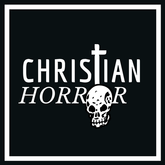
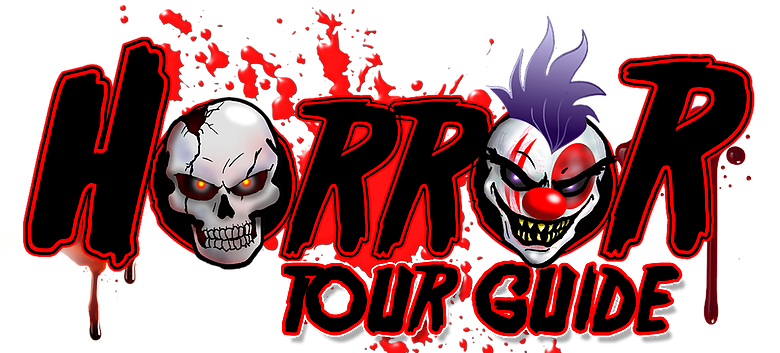
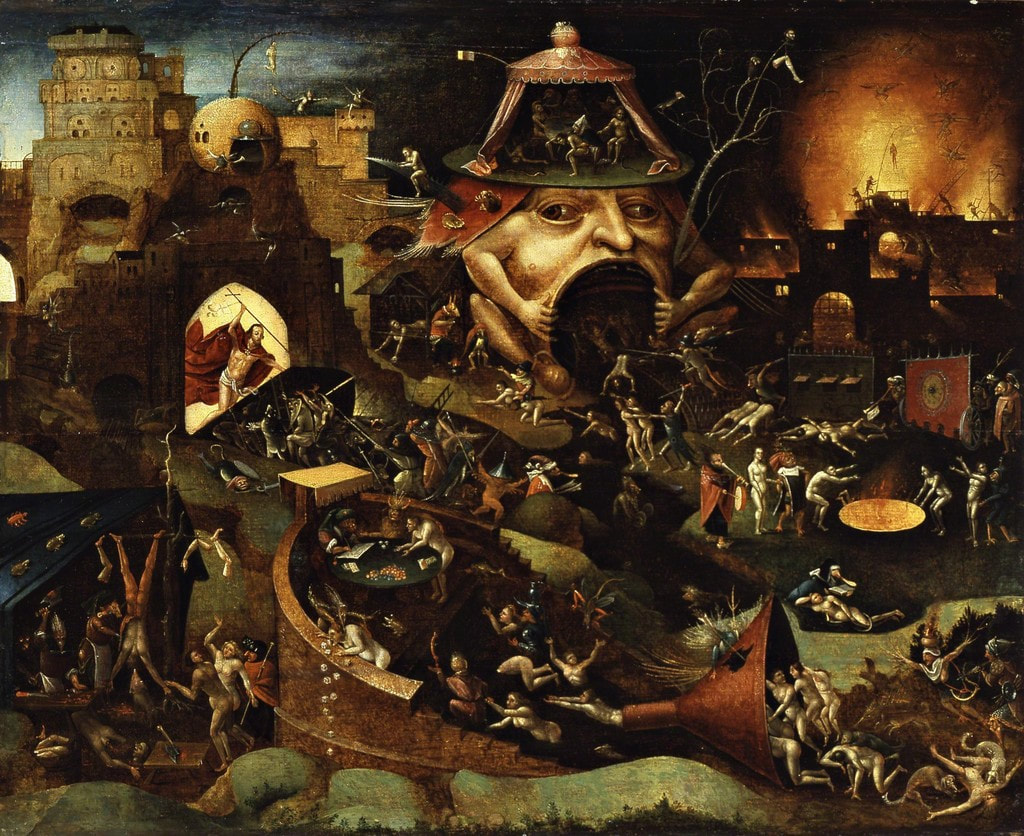
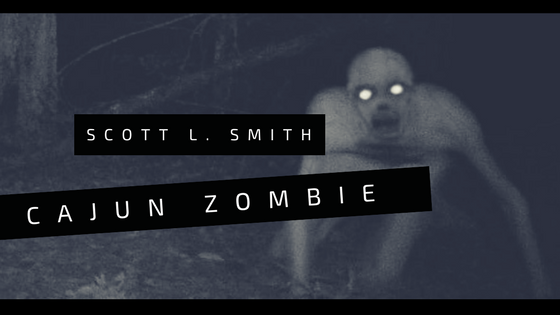
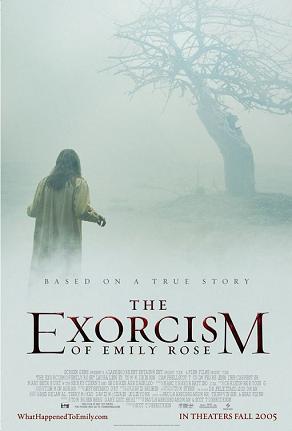
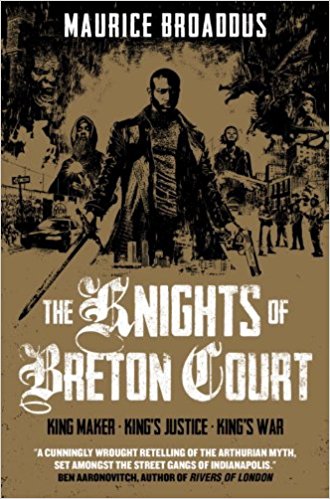
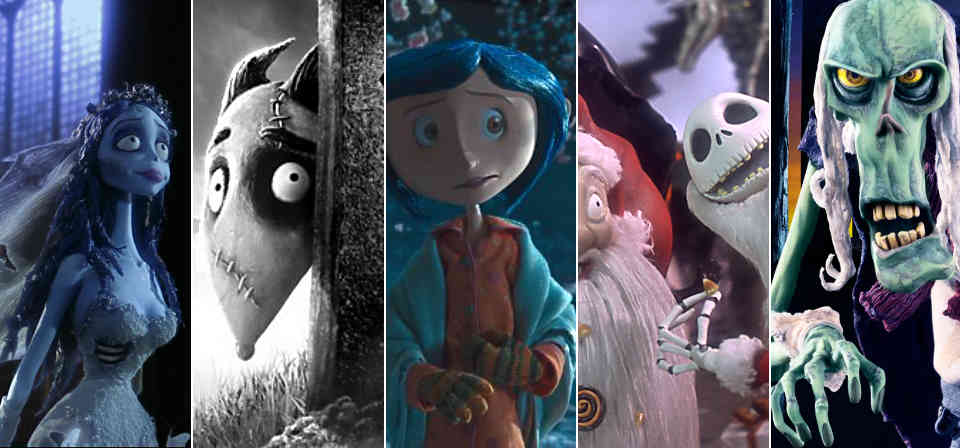
 RSS Feed
RSS Feed